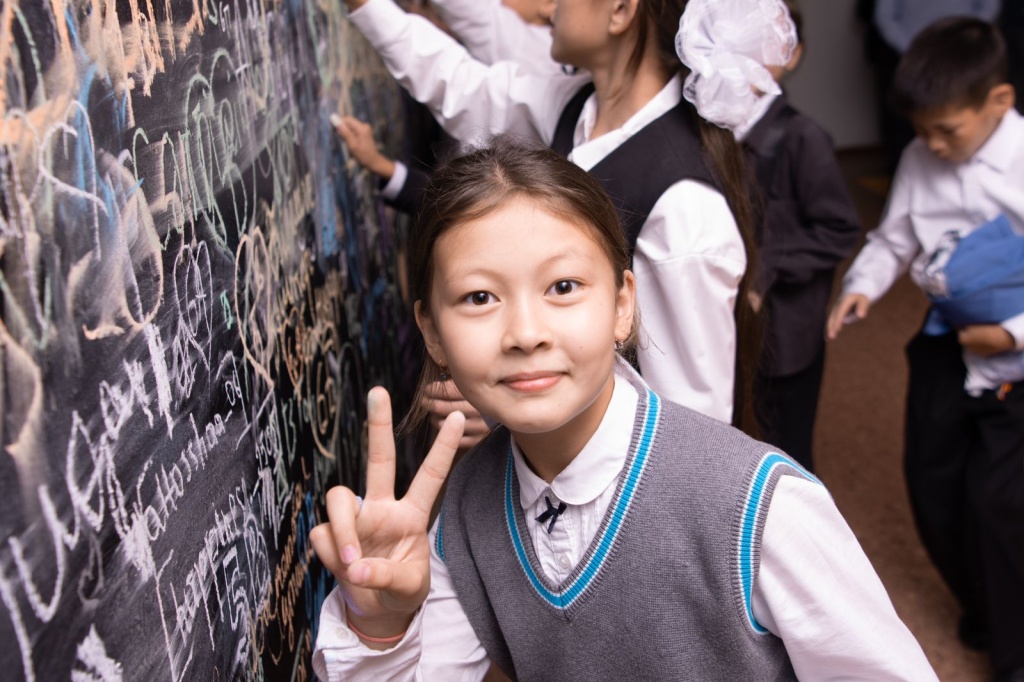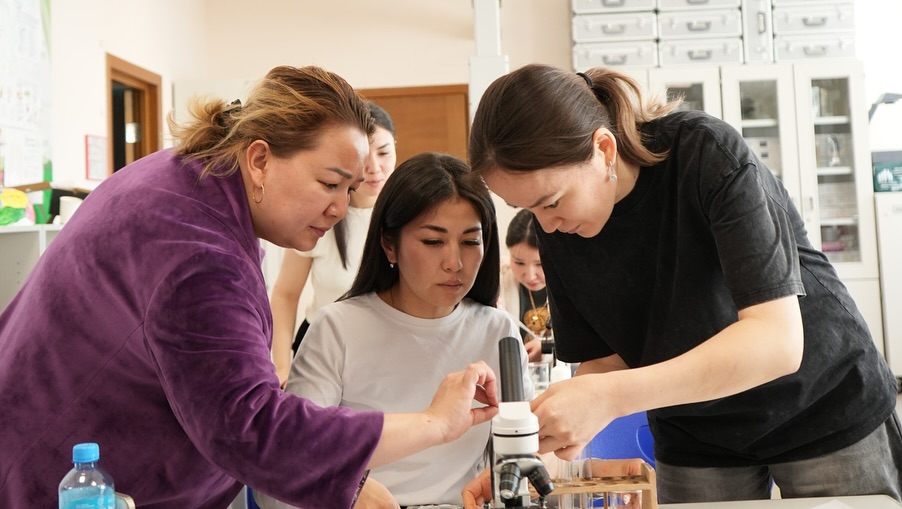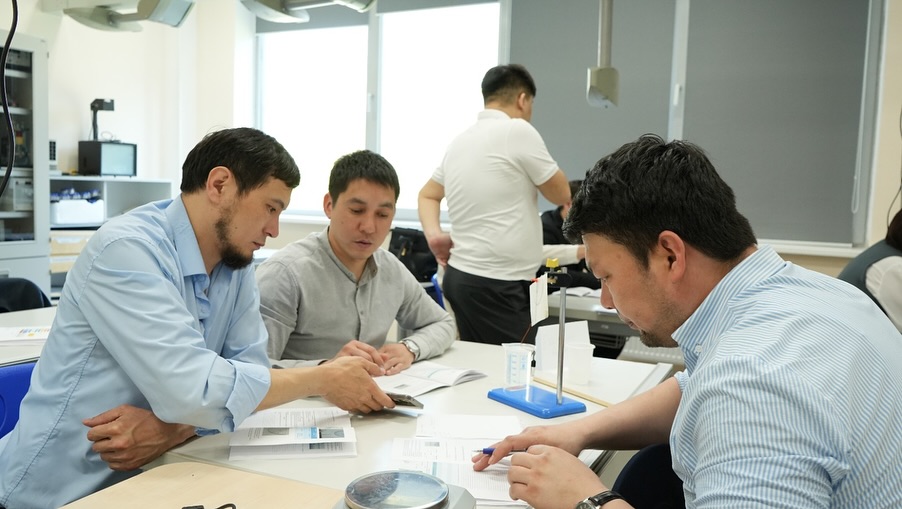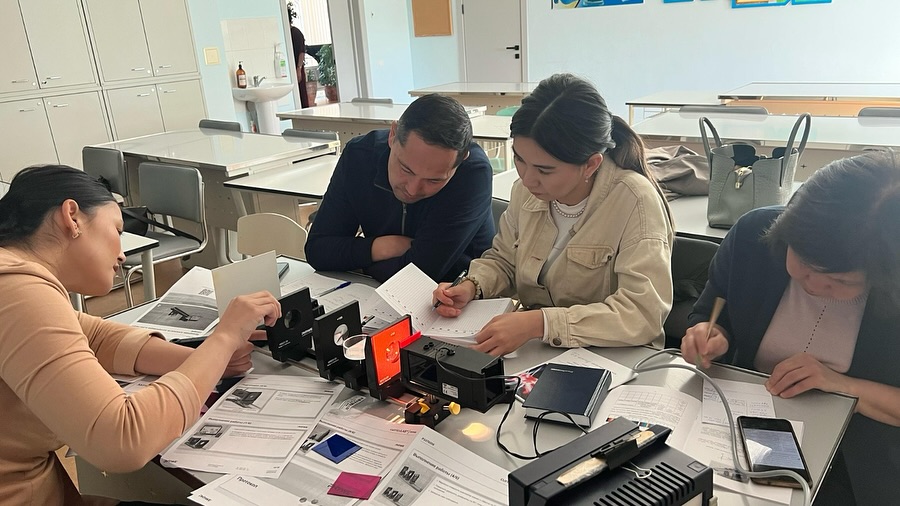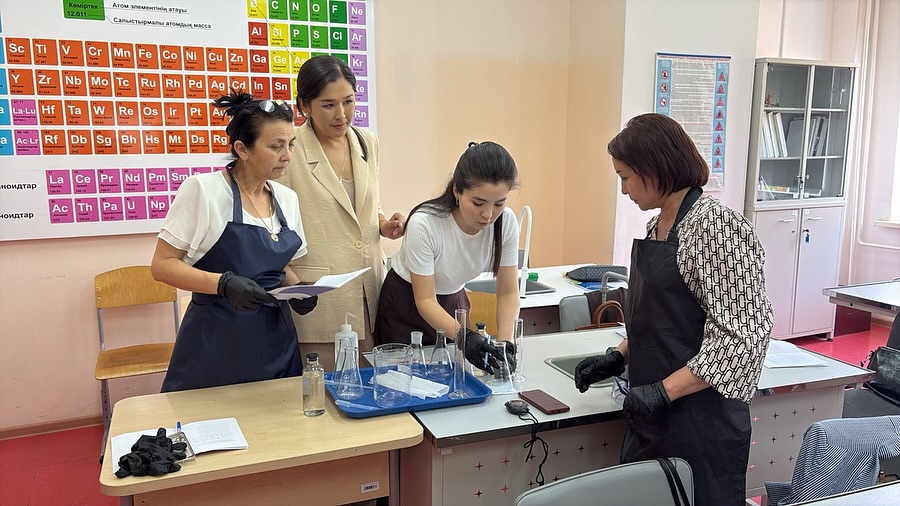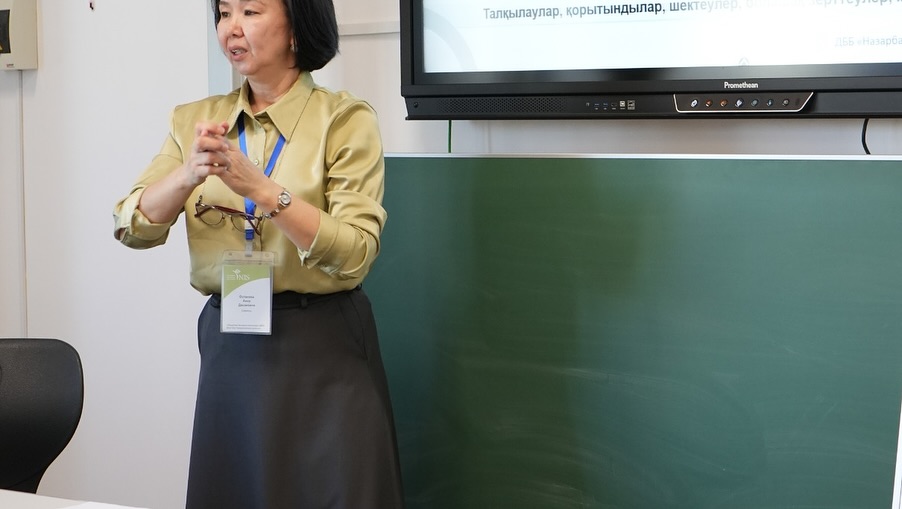Workshop: Developing Students' Research Skills
From April 21 to 29, 2025, the Center for Educational Programs of Nazarbayev Intellectual Schools (NIS) organized subject-specific workshops titled "Developing Students' Research Skills" as part of the project supporting rural hub schools.
The workshops were held at NIS campuses in Almaty, Astana, Pavlodar, Shymkent, and Atyrau, bringing together teachers of various subjects, including physics, chemistry, biology, geography, history, fine arts, and music. Educators exchanged experiences and discussed effective methods for developing students' research skills in the classroom.
During the events, participants engaged in laboratory and practical activities, developed creative projects, and explored research assignments. Teachers not only learned new approaches but also shared their own best practices, fostering an atmosphere of collaboration and idea exchange.
Following the two-day workshops, teachers highlighted the high level of organization and expressed their readiness to apply the acquired knowledge and skills in their daily teaching practices. They also emphasized the importance of holding similar workshops in the future, recognizing their contribution to professional development.
The project supporting rural hub schools continues to enhance teachers' professional skills, promoting the integration of modern educational practices and improving the quality of education.
